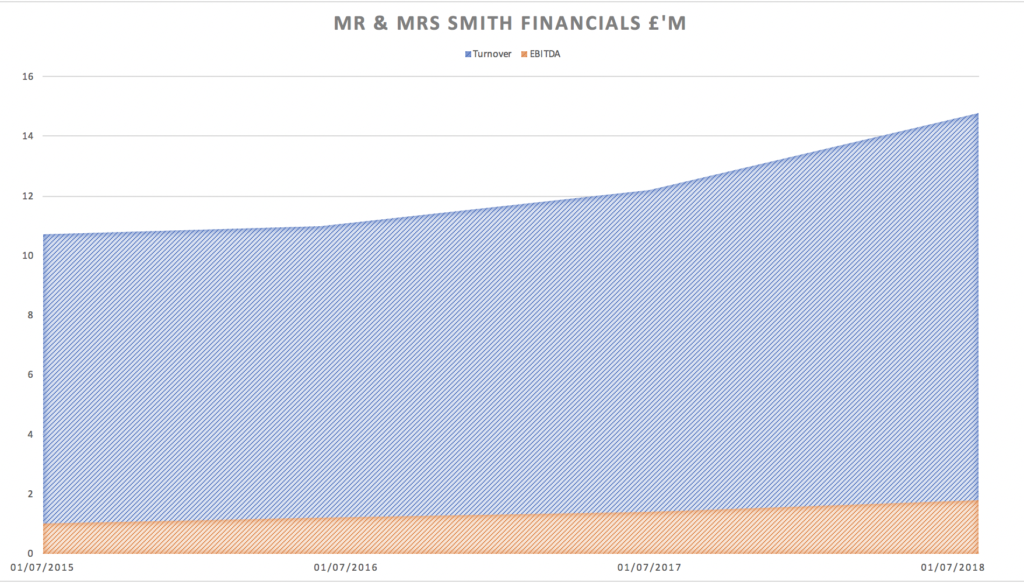Media commentary of Mr & Mrs Smith’s Crowdcube raise has largely focused on the brand smashing its investment targets. Most notably, the company reached its million pound crowdfunding target in just one day.
While it is both exciting and laudable that Crowdcube has proved its efficacy in raising significant equity for a global brand (made possible thanks to raise increases under the new EU Prospectus Directive), the interesting question is why, an established business such as Mr & Mrs Smith, chose to use Crowdcube – a platform which, up until now, has traditionally been used primarily by entrepreneurs and start-ups. Why was the business smart to use crowdfunding as a means of raising investment and what will have been the benefits for the brand, outside of it achieving its equity target? Does its success signify a step change in how big brands will seek to raise equity in the future?
The why behind Mr & Mrs Smith’s crowdfund
The process of crowdfunding has long been known to have benefits for brands, way beyond just a means to raise equity investment. Foundational to these benefits is the very public nature of crowdfunding and the fact that it democratises investment for potential and current customers. Mr & Mrs Smith has understood this, and realised there is commercial clout behind turning its members and brand advocates into investors who will then become even more deeply bought into the brand. These customer investors will drive increased levels of repeat business and impact the brand’s bottom line. As well as driving actual sales, the move, especially because they are trailblazers in this space, differentiates the Mr & Mrs Smith brand from other travel operators and will secure long-term customer loyalty.

Despite these persuasive motivations, crowdfunding may not be the right route for every brand, but for Mr & Mrs Smith the approach is well aligned to the brand’s story and historic approach. Tamara Lohan, Mr & Mrs Smith’s Co-Founder and CTO said, ‘Crowdfunding seemed more in line with the Mr & Mrs Smith ethos and the way we’ve always run things than other approaches to investment. Our members have been at the heart of our business for 15 years and we’ve always felt comfortable going to them for support…’ As long as it is material to a brand’s ethos and approach, crowdfunding has the power to make businesses feel more human and accessible. This has worked for Mr & Mrs Smith so far and its funding approach is totally in line with its wider brand strategy.
A value way beyond 6.2 million pounds
The positive noise which has surrounded Mr & Mrs Smith’s raise has incredible benefits – for both external and internal audiences. Positive media coverage achieved has been worth millions and will further boost stakeholder confidence in the brand. Tamara Lohan has also acknowledged the positive impact this very public raise has had on internal teams,’ The fact we’ve raised so much so fast has had a tremendously positive effect on the business and the morale of the worldwide team. There’s a buzz in the air, and people are excited about what the future holds.’
Further reading on crowdfunding
- Can Eureeca make equity crowdfunding truly global?
- 10 steps to crowdfunding your business
- Top 10 crowdfunding platforms for businesses in 2018
Crowdfunding is a visible vote of confidence in a business. A successful raise will hold wider business value ramifications independent of the equity asked for, and is likely to set the success of future investment propositions whether through crowdfunding or more traditional routes. Of course, there are risks to this approach. In the same way that Mr & Mrs Smith’s raise has created incredible value, a campaign which had not attracted the same response from investors could have had hugely negative ramifications. However, for big brands who understand their customer base the rewards of this approach, as seen with Mr & Mrs Smith, can be huge.
View Mr & Mrs Smith’s financial turnover and EBITA from 2015 – 2018 (2018 is forecast)

Consumer zeitgeist
Another key motivator cited by Mr & Mrs Smith for their crowdfunding approach was the chance to allow customers to have a stake in the company’s growth and profitability, ‘…this time, we’re giving them the chance to obtain equity in the company and share in our success too.’ This is particularly smart of the brand as it taps into a consumer zeitgeist which wants and expects corporate organisations to do their part in giving back – whether to the public which made them a success or to their employees. A partnership approach works commercially – John Lewis is so confident about its foundational employee partner model it is now shouting about it through its branding – but it is also increasingly being seen as a necessary expression of modern business which may even work its way into government policy. Crowdfunding takes this partnership spirit and weaves it into raising investment. For big brands, whose growing profits are inevitably tied to increased consumer scepticism, this is a way to invite the consumer in.
Mr & Mrs Smith will be the first of many big brands to use a crowdfunding approach. While for smaller businesses and start-ups crowdfunding is a route to growth and establishment in the market, this approach for larger brands encapsulates a much wider business strategy touching brand communications, consumer loyalty and the spirit of the age. For big brands to succeed they must be transparent, human and give consumers ownership of their profitability and global success. Crowdfunding is a clever way to be seen to do this and delivers for brands in a far deeper and more long-term way than the raise itself.
Helena Murphy and Duncan Di Biase run Raising Partners, an investment consultancy which partners with businesses of all sizes to secure investment through angel networks, VCs and crowdfunding.







